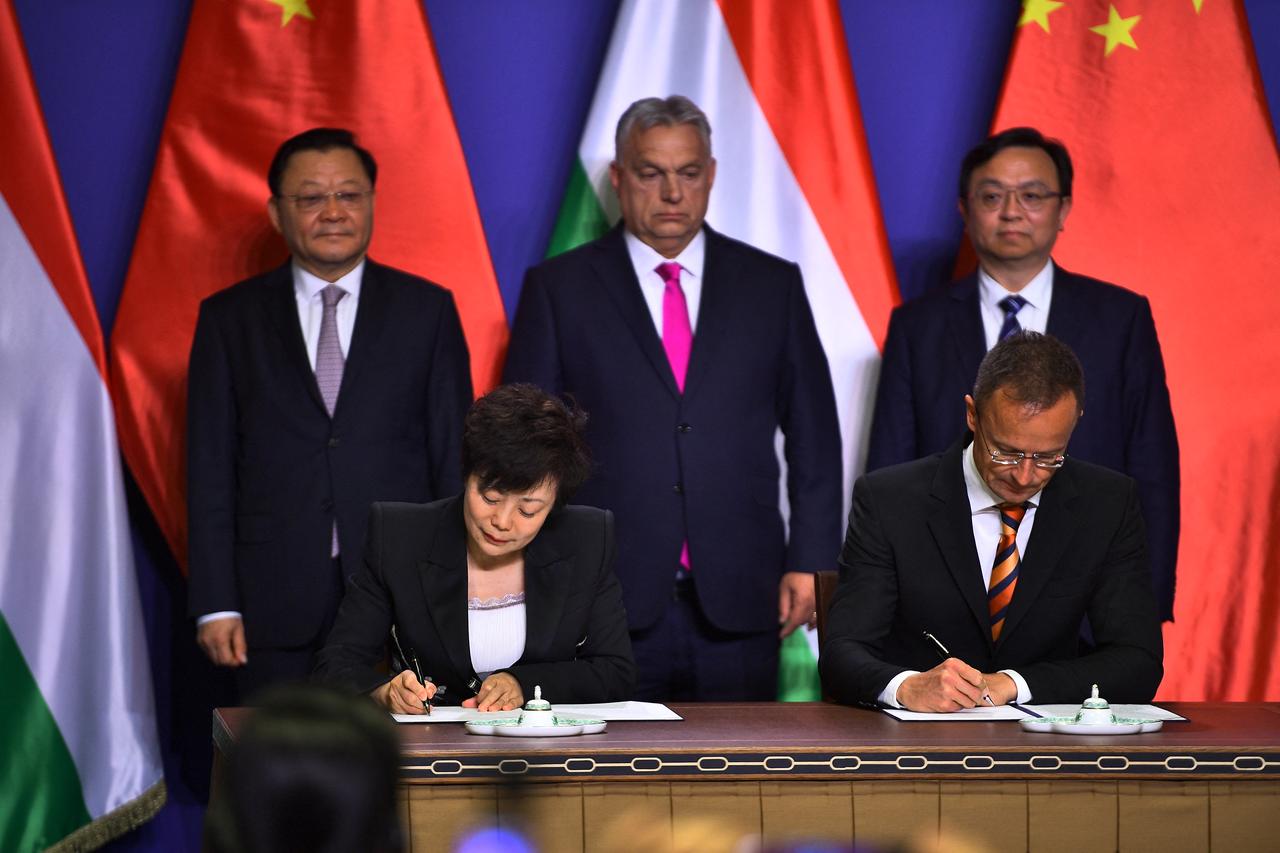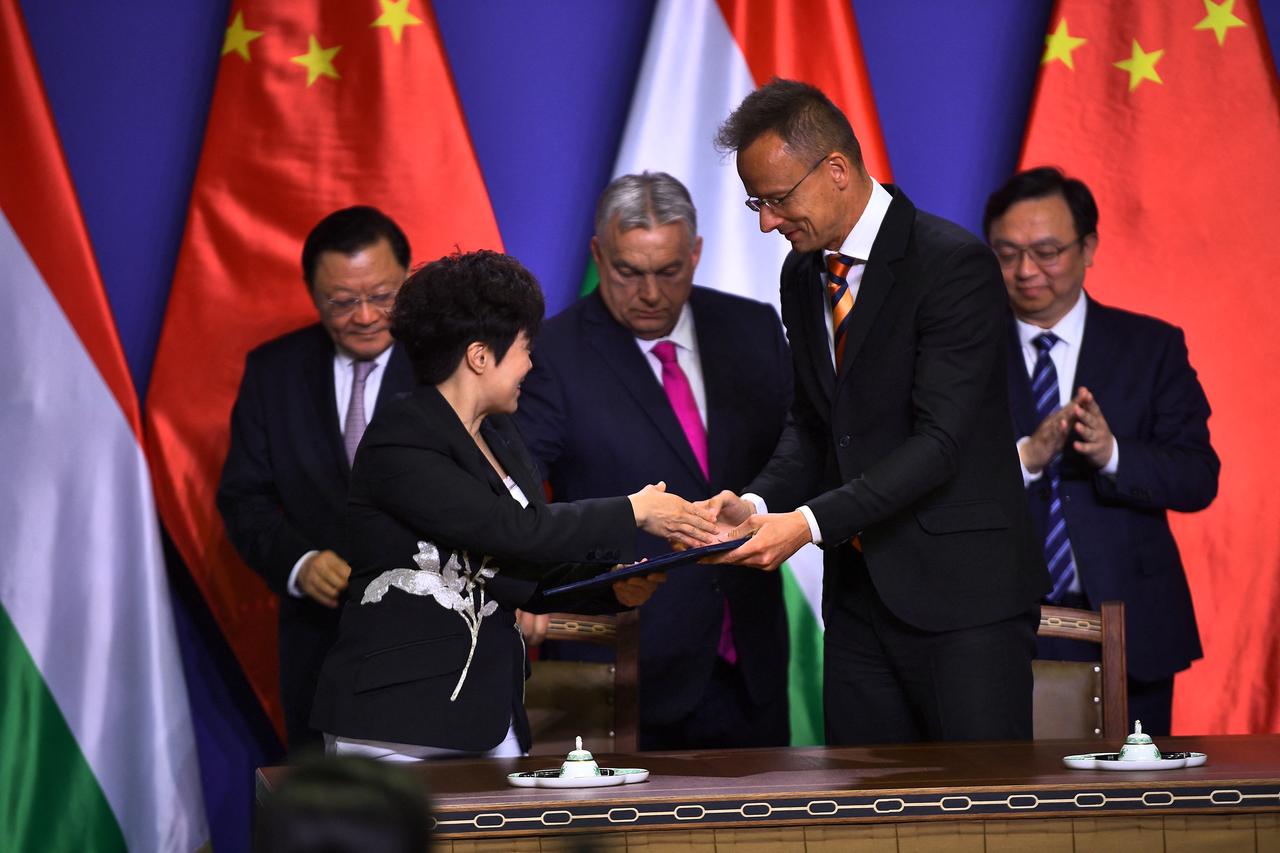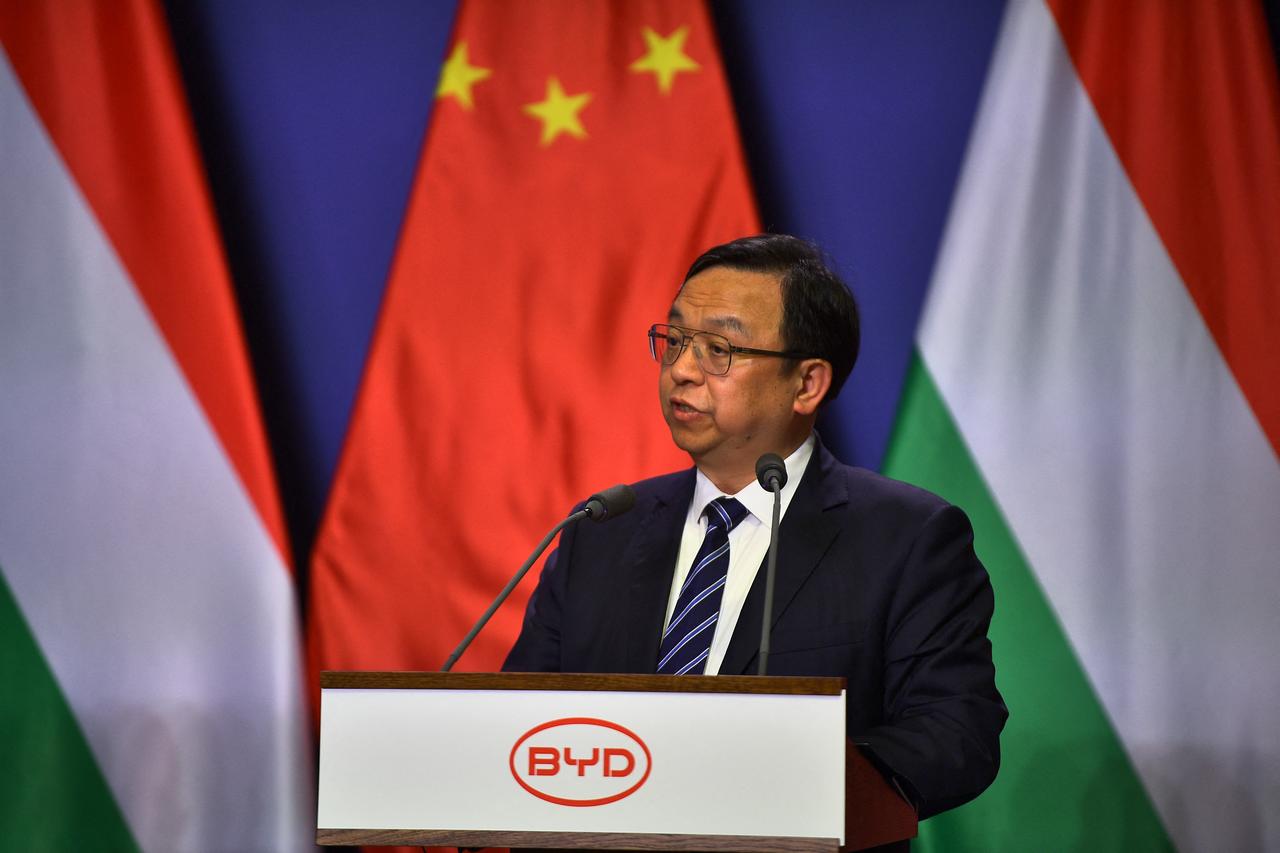
Chinese electric vehicle (EV) giant BYD is stepping up its expansion in Europe by setting up a new regional headquarters in Hungary, a move that is expected to create 2,000 new jobs, the Hungarian government announced Thursday.
The decision follows BYD’s recent $1 billion investment in Türkiye to build a major manufacturing plant with an annual production capacity of 150,000 vehicles. The facility is scheduled to open in 2026, marking a significant step in the automaker’s push to tap into the European market.
During a joint press conference in Budapest, Foreign Minister Peter Szijjarto said that BYD’s new facility, described as a “European corporate and development centre,” will be located in Budapest and is valued at 100 billion forints (approximately $278 million).

BYD Chairman and CEO Wang Chuanfu praised the deal as “another step in the friendly cooperation between the two parties,” highlighting the growing ties between China and Hungary.

The company already has a presence in Hungary, where it is building its first European electric vehicle assembly plant in Szeged, a city in the southeast of the country. That facility is expected to begin operations by the end of 2025 and will make BYD the first Chinese automaker to produce passenger cars in Europe.
Orban has paved the way for such investments by offering generous tax incentives and committing to infrastructure upgrades to accommodate foreign businesses. His administration’s pro-China stance stands in contrast to rising tensions between the European Union and Beijing, particularly over what the EU views as unfair state support for Chinese EV exports. In 2023, the European Commission launched a formal investigation into subsidies received by Chinese automakers.
Despite the scrutiny, Hungary has positioned itself as China’s closest partner within the EU. Last year, Prime Minister Orbán hosted Chinese President Xi Jinping during his first European visit since 2019.
Orban has been pursuing deeper economic ties with China, Russia, and other Asian economies since returning to power in 2010, distancing Hungary from more traditional Western alliances.